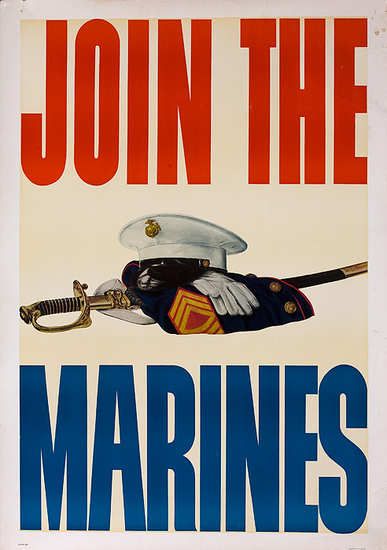As we compare Donald Trump and Kamala Harris through the lens of supporting the Marine Corps’ mission, it becomes clear that Trump’s platform and policies align more closely with the Corps’ objectives. Whether it’s defense spending, military readiness, veteran care, foreign policy, border security, or projecting American strength on the global stage, Trump’s track record demonstrates a commitment to ensuring the Marine Corps has what it needs to succeed.
Donald Trump’s presidency was marked by an emphasis on rebuilding the military after years of what many saw as decline during previous administrations. His focus on defense spending was critical for the Marine Corps, which thrives on readiness and quick response. Trump significantly increased the defense budget, ensuring that Marines had cutting-edge equipment, training, and support to meet the demands of modern warfare. Marines are expected to respond rapidly to crises worldwide, and Trump’s commitment to keeping the military well-funded ensured they were always prepared.
Additionally, Trump’s hardline stance on securing America’s southern border resonated with those who believe national defense starts at home. By deploying military resources, including Marines, to assist with border control, Trump demonstrated that he sees border security as a key component of national defense. His immigration policies prioritized protecting American citizens, and his administration’s use of military forces to safeguard the homeland directly benefited the Marine Corps’ overall mission of national defense.
Trump’s approach to veteran care also set him apart. He signed the VA Accountability Act, which held VA employees accountable for misconduct and poor performance, and expanded healthcare options for veterans. For Marines returning home from service, these changes improved access to better healthcare and mental health services. Trump’s emphasis on improving the lives of veterans shows his dedication to taking care of those who served, an issue near and dear to the hearts of many Marines and their families.
While Trump’s foreign policy was bold and sometimes controversial, it was rooted in the belief that American strength would deter aggression. His handling of threats like Iran, culminating in the killing of Iranian General Qassem Soleimani—reinforced his willingness to use military force when necessary. Trump’s approach in the Middle East also resulted in historic peace agreements, like the Abraham Accords, which helped stabilize the region. His assertive foreign policy reduced the likelihood of prolonged conflicts that drain Marine Corps resources.
Trump’s relationship with Russia, specifically with Vladimir Putin, drew criticism, but it was also part of a broader strategy of engaging rather than isolating adversaries. Trump’s administration placed sanctions on Russia and bolstered NATO forces in Eastern Europe. Though his personal rapport with Putin was questioned, Trump’s overall policy towards Russia included measures to keep the nation in check while maintaining diplomatic channels to avoid unnecessary military escalation.
In contrast, Kamala Harris, while emphasizing modernization and diplomacy, presents a more restrained vision for the military. Harris supports shifting focus toward cybersecurity and climate-related threats, which, while important, doesn’t address the immediate readiness and tactical needs of the Marine Corps. Her approach to veteran care is strong, but her reluctance to push for substantial increases in defense spending raises questions about her commitment to maintaining the military strength that the Corps requires.
Harris’s diplomatic approach might reduce direct conflict in the short term, but history has shown that projecting weakness or indecisiveness on the global stage can embolden adversaries. Her softer approach to foreign policy, particularly in regions like the Middle East, risks leaving Marines underfunded and underprepared for unforeseen crises. Additionally, while Harris takes a tougher stance on Russia than Trump, her overall foreign policy philosophy leans toward multilateralism and caution, which could undermine America’s ability to act decisively.
The Importance of Border Security
Trump’s administration also prioritized the protection of U.S. borders, which aligns with the broader mission of the military to secure the homeland. Marines were deployed to assist with border operations under Trump, reinforcing his belief that strong borders are vital to national security. Harris, on the other hand, supports a more lenient approach to immigration and border security, relying more on technology and law enforcement than on military resources. This divergence highlights a key philosophical difference: Trump’s view that the military, including the Marine Corps, plays a central role in defending American sovereignty, even at the border.
Republican vs. Democratic Leadership: A Century of Impact on the Marine Corps
When we examine how Republican and Democratic presidents over the last century have impacted the Marine Corps, a clear pattern emerges. Republican presidents have historically been more focused on defense spending, military expansion, and projecting American strength worldwide. These elements are essential for the Marine Corps’ mission, which requires constant readiness and the ability to respond to global crises at a moment’s notice.
Ronald Reagan, a Republican, revitalized the U.S. military during the Cold War, ensuring that the Marine Corps was equipped to deal with any threat from the Soviet Union. George W. Bush, another Republican, expanded the Marine Corps’ global role in the wake of the 9/11 attacks, deploying them to Afghanistan and Iraq to combat terrorism. While these conflicts were long and taxing, they solidified the Corps’ position as a critical element of American global dominance.
Democratic presidents, on the other hand, have often focused more on diplomacy and reducing defense spending. While modernization and veteran care are important aspects of Democratic policy, their reluctance to invest heavily in defense budgets sometimes leaves the military underfunded. Barack Obama, for example, pursued defense cuts and a strategy of military withdrawal, which left a vacuum in places like Iraq and Syria, resulting in the rise of ISIS and further instability. The Marine Corps suffered from reduced funding and the burden of dealing with the aftermath of incomplete missions.
Global Leadership: Which Candidate Restores America’s Image?
Trump’s “America First” doctrine, while criticized by some as isolationist, ultimately demonstrated his belief in protecting American interests above all else. Under his leadership, the U.S. was feared and respected, especially by adversaries like Iran and North Korea. He wasn’t afraid to use military force or sanctions to achieve his objectives, sending a message that the U.S. would not be pushed around on the global stage. Harris, though more focused on rebuilding alliances, risks projecting weakness by leaning too heavily on diplomacy without the backing of a strong military presence.
Trump’s foreign policy made it clear that America would protect its interests by force if necessary. Harris’ diplomatic-first approach, while noble in theory, may not carry the same weight in dealing with authoritarian leaders like Putin or with managing volatile regions like the Middle East. Trump’s approach to reducing conflict in the Middle East through strategic strikes and brokered peace deals worked, even if it was unconventional.
Donald Trump stands out as the candidate most aligned with the Marine Corps’ objectives. His record of increased defense spending, military readiness, tough border security, and assertive foreign policy ensures that the Marine Corps remains well-funded, prepared, and respected around the world. His ability to project American strength, challenge adversaries like Iran and Russia, and prioritize the needs of veterans makes him a clear choice for those who believe in a strong and capable Marine Corps.
While Trump’s policies align with the Marine Corps’ objectives, his personality often garners criticism. His ego, penchant for name-calling, and tendency to demean anyone who opposes him can overshadow his accomplishments. His strained relationships with high-profile military leaders like James Mattis and John Kelly highlight a potential disconnect with those who have served. However, many Marines understand the need to look beyond his demeanor and focus on the tangible policies that support their mission. They recognize that strong leadership and effective policies can outweigh personal grievances, particularly when it comes to military readiness and national security.
Kamala Harris, while focused on diplomacy, modernization, and veteran care, offers a less assertive vision for the military. Her reluctance to increase defense budgets and her softer foreign policy approach may leave the Marine Corps under-resourced and less able to meet the challenges of the modern world. Historically, Republican presidents have been better for maintaining the Marine Corps’ strength and readiness, and Trump’s vision continues that tradition, making him the best candidate to support both the Corps and America’s role as a global leader.
The views expressed in this article may not reflect the official position of the Marine Corps or any military organization.

 Our legacy lives through the stories we tell. The Suck Life wants yours! Make Chesty proud!
Our legacy lives through the stories we tell. The Suck Life wants yours! Make Chesty proud!



 Semper Fidelis
Semper Fidelis



